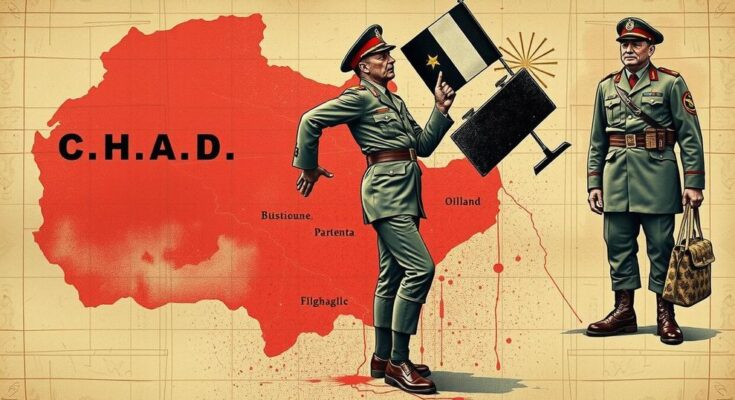Chad is conducting legislative, provincial, and local elections after three years of military rule, despite an opposition boycott due to allegations of electoral fraud from last year’s presidential elections. The ruling government faces accusations of manipulating the electoral process, with claims of ballot tampering surfacing. The elections occur amidst security threats and increasing repression, raising concerns about the future of democracy in Chad.
On Sunday, Chad opened polling stations for legislative, provincial, and local elections, marking a significant moment after three years of military governance. However, these elections are marred by a boycott initiated by opposition candidates, who have condemned last year’s presidential election as fraudulent. The ruling party, aligned with Marshal Mahamat Idriss Itno—who assumed power in 2021 following his father’s death—faces allegations of electoral manipulation as the opposition staunchly decries the legitimacy of the governance.
Opposition leader Succes Masra urged supporters to abstain from voting, asserting that the regime operates on “lies and electoral theft.” Claims of ballot tampering have intensified, with accusations from the Democratic Party of the Chadian People (PDPT) alleging the disappearance of over a thousand ballots in Bongor, prompting calls for vigilance against potential fraud. The elections are being monitored by foreign observers amidst an environment historically influenced by jihadist threats, ongoing conflicts, and a deteriorating relationship with former colonial power France.
The electoral process unfolds against a backdrop characterized by increasing repression and autocratic governance, as highlighted by the violent suppression of opposition demonstrations in October 2022. The government has attempted to bolster civic engagement; however, a strike by online journalists and a general blackout of news coverage have hindered the dissemination of information related to the elections. Chad’s last legislative elections were conducted in 2011, with subsequent elections postponed due to various crises. As such, the current electoral exercise is viewed as a pivotal yet contentious step towards revamping Chad’s democratic framework, with the ruling party seeking to present it as a culmination of their political promises.
Chad, a nation that has experienced significant political upheaval, has been under military rule for the past three years following the death of long-serving President Idriss Déby. Marshal Mahamat Idriss Itno assumed power and called for elections as a means to transition to democratic rule. However, the atmosphere remains charged with allegations of electoral malpractice, and pervasive insurgent threats from Boko Haram continue to challenge state stability. Opposition voices have been increasingly marginalized, raising serious concerns regarding human rights and the integrity of the electoral process.
The elections in Chad symbolize both a critical juncture and a contentious struggle for power, marked by widespread opposition boycotts and accusations of fraud. While the government positions the polls as a step towards democracy, ongoing repression and failures in civic engagement underscore the challenges facing the nation. The international community watches closely as Chad navigates this delicate transition, with its commitment to genuine democratic principles still in question.
Original Source: www.france24.com




